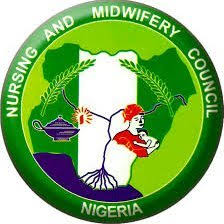On the occasion of International Women’s Day, the International Council of Nurses (ICN) is highlighting the key role of nurses in helping rural women and girls access healthcare services. The specific concerns of women in rural areas will be discussed at the upcoming 62nd session of the UN Commission on the Status of Women, which ICN will attend on 12-23 March.
As reported in ICN’s International Nurses Day (IND) toolkit, which was launched on 27 February, “People living in rural areas often have poorer general health than those living in metropolitan areas due to significant differences in the social determinants of health.“ The concern for the urban-rural gap is of significance for the health sector as the factors that contribute to inequality in educational attainments, income and living standards all converge and result in poorer health standards.
Health services and health professionals are increasingly centralised in urban areas. Often, the only health professionals working in remote areas are nurses, who consequently take on multiple roles across specialties to best deliver care and provide a link with other allied health workers. It is estimated that half of the world’s population live in rural areas, yet these areas are served by less than 38% of the total nursing workforce. In some countries it is even less than this.

As a direct result, women are also more affected by this systemic phenomenon, being at greater risks of neglect in their sexual and reproductive health, body integrity and abuse. They are more likely to be denied an education and to be married underaged; two factors that increase their risks of contracting sexually transmitted infections (STIs), having unplanned pregnancies and other related health complications.
“Lack of access to services, low socio-economic status and societal values that tolerate violence, sexual abuse and other violations of women’s rights have a direct impact on the health of women and girls,” said Professor Thomas Kearns, ICN’s Interim Chief Executive Officer. “Nurses can have a significant impact on strengthening women’s capacity to exercise increased control over their lives and living conditions.
According to Katja Iversen, President/CEO of Women Deliver, “Girls’ and women’s sexual and reproductive health and rights are a prerequisite for a healthy population and a healthy planet. Whether treating diabetes in pregnancy, screening for STIs, or educating on contraception, nurses are powerful agents of change upholding health and human rights on the frontline, ensuring progress for all.”
Given the important role nurses play in bridging the health service gap to these remote locations, the need to support them is even more crucial as it requires not only effective skills and quality education but also recognition of their status and decision-making abilities to allow them to carry out their role to their full potential.
Case studies in the International Nurses’ Day report highlight contributions and innovative models of care led by nurses all over the world and unique to the profession’s holistic approach. One such case study is that of the nurses working on the Mercy Ships, an international organisation operating a fleet of hospital ships in developing nations. The nurses provide free health services - particularly maternal and child care – to communities with little or no access to affordable care.
Another example comes from Australia, where “flying” mental health nurses provide specialist mental health care for people with severe and complex mental illness who live in remote and isolated areas.
Note for Editors
The International Council of Nurses (ICN) is a federation of more than 130 national nurses associations representing the millions of nurses worldwide. Operated by nurses and leading nursing internationally, ICN works to ensure quality care for all and sound health policies globally.
For further information contact Julie Clerget at: [email protected] Tel: +41 22 908 0100 www.icn.ch www.icncongress.com @ICNurses #ICN2018
ABUJA: Training Schedule for Basic Life Support BLS, Pediatric Advanced Life Support (PALS), Advanced Cardiovascular Life Support ACLS, First Aid, CPR, AED
PORTHARCOURT: Training Schedule for Basic Life Support BLS, Pediatric Advanced Life Support (PALS), Advanced Cardiovascular Life Support ACLS, First Aid, CPR, AED
LAGOS: Training Schedule for Basic Life Support BLS, Pediatric Advanced Life Support (PALS), Advanced Cardiovascular Life Support ACLS, First Aid, CPR, AED
STOP paying for airtime and electricity, Let your phone pay its bills with ScreenT




